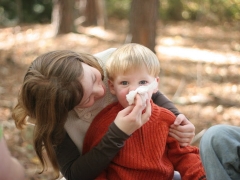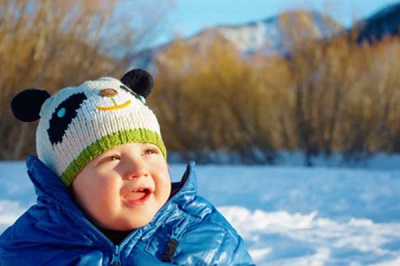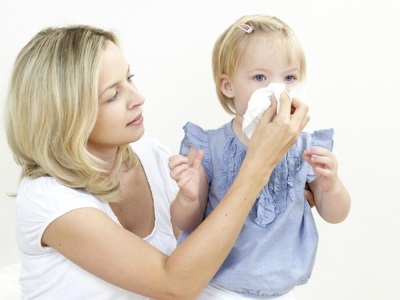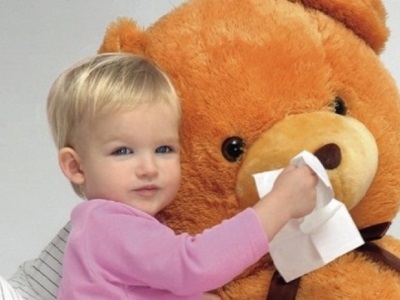Is it possible to walk with a child with a cold?
When a child falls ill, many parents doubt whether it is advisable to go for a walk with the baby and whether it will not worsen the course of the disease, causing any complications. Particularly relevant is the question of the admissibility of walks with not too serious diseases, for example, with the appearance of allergic rhinitis, viral rhinitis or chronic rhinitis.
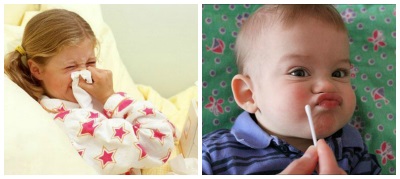
The benefits of walking
In most situations of a runny nose, it is not only possible to go for a walk with the children, but even necessary. Fresh air, getting into the respiratory tract, will improve the condition of the mucous membranes, will stimulate the secretion of mucus and facilitate breathing. In addition, it will improve blood circulation, which will help to quickly get rid of toxins and germs. Especially useful to walk with children with rhinitis, if at home it is difficult to create conditions in which the kids will breathe clean and moist air.
When can not walk?
Leave the child with a cold at home should be in such situations:
- The child has a fever, chills or fever.
- The baby's general condition is worsened, there is no appetite, weakness, lethargy and headaches are noted.
- The runny nose is allergic in nature and has arisen during the flowering period of some plants. Walking in this case is possible, but the use of a cotton-gauze bandage is necessary.
Should you walk in windy or cold weather?
Note that the mucous membrane of the respiratory tract is well perceived in any weather, so neither damp, nor fog, nor snowfall, nor a drizzle should be an obstacle to walking. The only harmful effect on the nasopharynx is too dry air - both hot and cold. However, it all depends on the characteristics of the organism, for example, some children calmly breathe the winter "prickly" air in Siberia, while others find it difficult to breathe at -5ºWITH.
Recommendations for winter walks or windy weather would be:
- A runny nose will not be a reason to refuse to walk, if the baby is well tolerated by the temperature of the air outside. That is, if before the appearance of rhinitis the child normally walked with the wind or low temperature, then in the event of a rhinitis, he will feel good.
- If the outside temperature is very low (below -15 ° C), the walk should be abandoned.
- It is not necessary to take out to a frost newborns and babies under 6 months.
- If it’s raining hard, it’s better to stay home.
In case of a light drizzling rain or fog (even if it is very thick), walking is permissible.
Opinion of Dr. Komarovsky
A popular doctor says that fresh air will only accelerate recovery, provided that the walk is calm and the child’s general condition is normal. If the kid is active and wants to go for a walk, Komarovsky sees no reason to refuse children with a cold in daily walks.
You can learn more about the opinion of a famous pediatric doctor in the following video.
Tips
- Before you go for a walk with a child who has a runny nose, you need to clear your baby's nose. If the nose remains stuffy, the child will breathe through the mouth during a walk, risking to catch sore throat.
- Clothing for walking is best to choose the one in which you walk in a healthy state. The child must be dressed in such a way as to prevent hypothermia.No need to muffle a child with a cold, as excessively warm clothes will cause sweating from active movements. This is the risk of a cold during the recovery period, when the immune system is still weak.
- You should not walk with the baby, who has a runny nose, on the playground. After talking with other children, he can infect other children and catch a new infection from them.
- Consultation with a pediatrician at the expense of the permissibility of walking in specific weather conditions for your child will always be rational and appropriate. Especially if we are talking about a little chest age.
- The optimal length of the walk is a period from 40 minutes to 1 hour. This time is enough to get the right portion of fresh clean air. In the cold season, the walk time is reduced to 20-30 minutes.
- Do not let your child overwork on a walk. Best of all, the child does not run and jump, and walked calmly.
